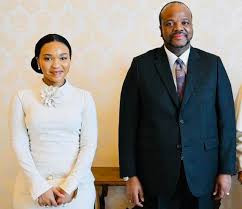King Mswati III: Leadership and National Challenges

Introduction
King Mswati III is the last absolute monarch in Africa, having ascended to the throne of Eswatini (formerly Swaziland) in 1986. His reign has been significant not only for the traditions of the nation but also for the political and social challenges that have emerged over the years. Understanding Mswati’s leadership is crucial as it reflects the intersection of monarchy, modern governance, and the aspirations of the Swazi people.
The Reign of King Mswati III
Born on April 19, 1968, Mswati III became king at the age of 18, following the death of his father, King Sobhuza II. His rule has been characterized by a blend of traditional customs and struggles against modern political pressures. Despite being a monarch in an age of democracy, Mswati has maintained tight control over the kingdom, dismissing calls for constitutional reforms that would limit his powers.
Recent Events and Issues
In recent years, King Mswati III’s reign has faced growing unrest and demonstrations. Many citizens are discontent with economic hardships, including poverty and high unemployment rates, which have sparked protests demanding democratic reforms. The COVID-19 pandemic exacerbated these issues, straining public health services and leading to increased criticism of the kingdom’s management. In mid-2021, protests erupted, and there were significant calls for change, challenging Mswati’s long-standing authority.
International Relations and Economic Challenges
Eswatini’s international standing has also been affected by Mswati’s governance. Human rights concerns have led to scrutiny from global organizations, with calls for better political freedoms. Economically, Eswatini relies heavily on South Africa for trade and has sought foreign investment while struggling to diversify its economy. The king’s often lavish lifestyle and political decisions have also invited criticism regarding resource allocation amidst widespread poverty.
Conclusion
The future of King Mswati III and Eswatini is uncertain as citizens continue to voice their demands for democracy against the backdrop of longstanding traditions. The coming years may bring further challenges to his rule and potentially greater calls for substantial reform in Eswatini’s governance. Observers suggest that the kingdom might eventually need to adapt to the changing political landscape to ensure stability and prosperity for its people, which could redefine the monarchy’s role in a modern context.









